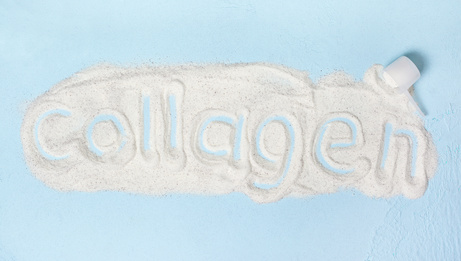
What depletes collagen and how to control it!
Collagen, collagen, collagen! It seems like you can’t go to any health store or ready a health blog without hearing about the wonderful benefits of supplementing with this protein! We have talked in several articles as well about the benefits of adding collagen to our daily supplement regimen, but what we haven’t talked about is COLLAGEN LOSS!
Collagen is the most abundant protein in our bodies, making up about 70% of our nails, hair, and skin and 100% of our connective tissue. Collagen is basically the glue that holds our entire body together! Starting about age 25-30, our collagen production starts to slow, getting progressively more noticeable as we get older, causing everything from loss of skin elasticity to creaky joints and gut issues.
- Most women lose 1-2% collagen per year starting in the early to mid 30’s, sometimes before.
- Most women will have lost 10-20% of their collagen by age 40.
While age is an uncontrollable factor, stress and the foods we eat play a role in either accelerating or slowing this process, signifying that WE HAVE CONTROL of much of our collagen loss! Stress and the foods we consume control not only our collagen expression but our gene expression as well, so it is imperative that we do everything we can to preserve the collagen that we have.
What depletes our collagen?
- Stress! Chronic stress causes chronically high cortisol levels which deplete our bodies of collagen. Stress is for the most part unavoidable, but it is our body’s perception of stress that causes cortisol levels to rise. As often as you can, do things that you love, take epsom salt baths, stretch, enjoy a sunset. Every little thing you do has an impact.
- Poor sleep depletes collagen. Create a healthy bedtime routine, diffuse lavender, take oral magnesium supplements, take epsom salt baths. Quality sleep affects not only your mental health but your collagen production as well.
- Overexposure to the sun. Some sun exposure is a good thing, providing the best form of vitamin d, but allowing ourselves prolonged sun exposure without sunscreen can negatively impact our collagen levels.
- Diet low in antioxidants. This is the role of fruits and veggies in our diet. Not only are they beneficial for cancer prevention and maintaining a healthy weight, but the antioxidants actually help maintain healthy collagen levels.
- A diet deficient in vitamin c and zinc. To get an extra boost of these nutrients from a quality, bioavailable multi, try this supplement.
- Lack of activity. Our bodies were designed to move, not to sit and our cortisol levels will respond accordingly based on our activity levels.
What builds collagen:
- Bone broth. We have talked a lot about bone broth in past articles, but adding homemade (store bought is rarely real bone broth) broth to your daily regimen will help to build collagen levels.
- Antioxidant rich foods like fruits and vegetables and herbs like turmeric, green tea, and rosemary
- Adding foods high in vitamin C like peppers, kale, and citrus
- Adaptogenic herbs like ashwagandha
- And Collagen of course! The best collagen booster is collagen itself! Add this daily to your regimen as an extra insurance policy.

STEP(S) FOR THIS WEEK:
- Examine the list above to see if there are some changes you can make to your diet or lifestyle regimen to boost your collagen production as well as prevent collagen loss.